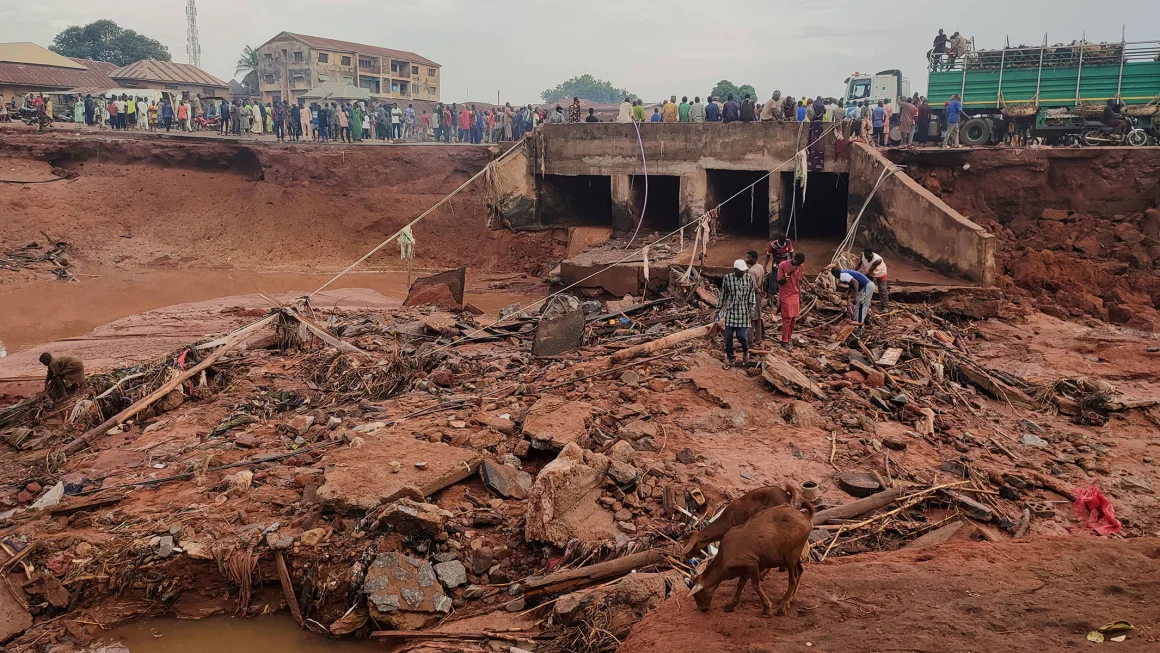A devastating flood has swept through Mokwa, a bustling agricultural town in Nigeria’s Niger State, killing at least 151 people and displacing thousands. The flood, triggered by relentless rainfall, struck early Thursday morning while many residents were still asleep, catching entire households unaware and submerging homes before anyone could escape.
According to Ibrahim Hussaini, spokesperson for the Niger State Emergency Management Agency (NSEMA), the flood claimed the lives of “many children” among the confirmed dead. The Kpege neighborhood of Mokwa was one of the hardest hit, with emergency teams still recovering bodies days after the floodwaters receded.
Survivors in Shock
Residents are grappling with unimaginable loss. Hassan Abdullahi, 26, told CNN that he lost nine members of his family — including his elderly mother and four young children aged between 4 and 8. His home was washed away entirely, leaving behind nothing but grief and debris.
Read Also: Russia launched war’s largest drone attack ahead of Putin-Trump call
“I feel so bad. How I wish I could bring them back alive, but no way,” he lamented. “We lost everything. Even a single cloth and shoe, we don’t have. Where to sleep, we don’t have. We are in serious pain.”
A Town Submerged, A Nation in Mourning
The Niger State government described the disaster as “saddening, heartbreaking, and pathetic.” Entire buildings were flattened or submerged, and communities once full of life now stand as waterlogged ruins. Over 3,000 people have been displaced so far, with temporary shelters being scrambled together as rescue operations continue.
Recurring Nightmare
This latest disaster adds to a growing trend of deadly flooding in northern Nigeria, a region increasingly vulnerable to climate extremes. Last year, over 200 people died and more than 386,000 were displaced across the north due to prolonged flooding. In 2022, Nigeria experienced its worst flood in over a decade, with more than 600 fatalities and over one million people forced from their homes.
Experts blame poor urban planning, lack of drainage infrastructure, and increasing rainfall intensity due to climate change as key contributors to these recurring tragedies.
Rescue and Relief in Motion
Emergency workers are continuing search-and-rescue missions in the area, using boats and makeshift equipment to reach isolated communities. The National Emergency Management Agency (NEMA) and local authorities have pledged urgent relief materials, including food, clean water, and temporary housing. However, survivors like Hassan say immediate help has been slow to arrive, and the scale of need is overwhelming.
Call for Long-Term Action
The Nigerian government faces growing pressure to invest in flood defenses and early warning systems. Civil society organizations and international aid agencies are calling for urgent climate adaptation strategies to prevent such loss of life in the future.
For now, the people of Mokwa are left to mourn, rebuild, and hope that the next flood won’t find them equally unprepared.
“This is a national emergency,” one local official said. “And it’s not just about water. It’s about lives, futures, and the soul of our communities.”

